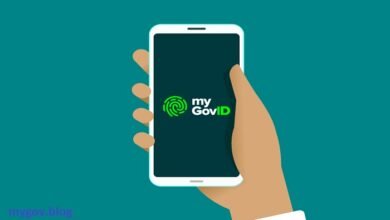MyGov Account Security Concerns: Understanding and Mitigating Risks

Introduction
MyGov account is an invaluable portal to obtain various government services in countries like Australia. This account often contains sensitive personal data on everything from healthcare to taxation as well as other public services. In the digital world, where a plethora of services exist, MyGov accounts are also prone to security threats. It’s critical to know all that there is to be aware of about these dangers and how to practice good habits to ensure your information is as secure as possible.
In this article, we will discuss several MyGov Account Security Concerns issues, their cause, and steps you can take to secure your account and personal information. Let us explore these concerns and how you can avoid becoming a victim of the cyber boogeyman.
Why are MyGov accounts important?
MyGov Account Security Concerns is a Safe Online Portal For Users To Access Several Government Services. It links users with services like Medicare, Centrelink, the Australian Taxation Office (ATO) and others. Its account contains personal as well as financial information, and as such becomes an ideal target for hackers. It is important to understand that this is the first step to help protect yourself against would be threats.
The bigger issue is that if a hacker does get access, they’ll misuse sensitive data. This can be used for identity theft, fraud or unauthorized transactions. In view of all this, it is important to be alert to the security of the MyGov account.
MyGov Account Security Related FAQs
Steps will ensure your MyGov Account Security Concerns is protected against offline attacks. Accounts with weak passwords are often targeted by cybercriminals, but so are users who fail to use two-factor authentication. These threats result in severe financial losses to individuals and also cause emotional damage especially where people are dependent on MyGov Account Security Concerns services to get government benefits.
To address these risks, it is essential to remain aware of new security threats and to consistently follow safe online practices, including the use of strong, unique passwords and enabling such security features as multi-factor authentication.
The Phishing Attack Cycle: An Evolving Target for MyGov Accounts
Phishing, which is one of the most common threats for MyGov account security. Phishing attacks refer to the practice of cybercriminals impersonating legitimate institutions, like the government or financial organizations, to commit identity theft. These are usually emails, messages, or phone calls that ask you for sensitive data or to click on harmful links.
MyGov Account Security Concerns Phishing Attacks: Always Verify Communication Authenticity This system medico-legal, mystique medico-legal, and you should never click on suspicious links, and you should always make sure that your address on the page begins with the person thing: https: //.
PASSWORDS: MIDDLE SECURITY THREAT
One of the biggest weaknesses of any online account including MyGov Account Security Concerns is weak password. Frankly, one of the most popular ways used by cybercriminals to allow cracking on weak passwords and access accounts unauthorized. A good password should contain a combination of upper and lower case letters, numbers and special characters.
Do not use easy to guess information such as name, birthdate, simple words. You can instead use a password manager to generate and save long, complex passwords for your MyGov account, so you know that each password is unique and secure.
Enhancing MyGov Security with Two-Factor Authentication
2FA adds extra protection to your MyGov account. By requiring two ways to prove your identity (like a password and a code sent to your phone) 2FA makes it much more difficult for attackers to get in, even if they have your password.
One of the most effective methods to secure your MyGov account is for you to enable 2FA. This is offered by a ton of services – including MyGov – for free, so there is no reason not to.
Protecting your MyGov account credentials
One more important issue of MyGov Account Security Concerns is Account sharing. Hackers and cybercriminals often prey on individuals who compromise their account details by sharing them with others. Sharing passwords or account recovery details increases the risk of unauthorized access.
Never share the details of your MyGov account. Never share your login information with another dreamer, and be careful if you allow someone to access your account. Change your password and report the suspicious activity to the appropriate parties, if you believe your account details have been breached.
Why You Should Never Use a Public Wi-Fi Network to Access MyGov Accounts
Public Wi-Fi networks are not private and can expose your MyGov to hackers. When using a public Wi-Fi network, attackers might intercept the data being sent between your device and the internet itself, including your login credentials and personal information.
To mitigate this risk, never log into your MyGov Account Security Concerns over public Wi-Fi. Use a VPN (Virtual Private Network) when on the road visiting your account.
Identifying Suspicious MyGov Account Activity
It is important that you remain alert for any unusual activity on your MyGov account. Strange logins, new personal information, or alerts you never signed up for may mean someone hacked your account. If you see any of these indications, immediately lock your account and change your password.
If you keep a close eye on your account, you may be able to catch potential threats early and take action before any serious damage is done.
Further Reading: What To Do When An Identity Is Compromised?
If you think your MyGov account was hacked — do not delay. First, you should lock your account and reset your password right away. Then reach out to the appropriate organizations, like the Australian Cyber Security Centre (ACSC), for instructions on how to lock your account and notify the breach.
11] In addition, you might have to edit your personal information as well as security settings for your details to remain secure.
Cyber Security at MyGov: What We Are Doing to Protect You
MyGov Account Security Concerns and any other government websites spend a lot on cybersecurity to keep users’ personal data secure. These services typically implement encryption, secure authentication methods, and regular security assessments to help prevent potential data breaches. These measures are, however, not infallible, and users should still take further action in securing their accounts.
It is important to note that enabling two-factor authentication, using strong passwords, and practicing safe browsing habits can make sure that your MyGov account information remains secure.
Government’s Role in MyGov Account Safety
It is the responsibility of the government to maintain MyGov Account Security Concerns. Whether establishing security protocols or advising best practices, the government is here to assist users in safeguarding sensitive data. Still, individuals need to take some responsibility for their own safety online.
In fact, most government websites and services insure users the understanding that cybersecurity matters and that there are appropriate steps to securing their accounts/facilities. Staying informed about such resources is instrumental in safeguarding your MyGov Account Security Concerns from potential threats.
How to Keep MyGov Account Secure: Things to Remember
In short, protecting your MyGov account is about awareness, vigilance and acting on it. To secure your account, there are several best practices to follow:
Turn on two-factor authentication.
Use strong, unique passwords.
Never access your account on public Wi-Fi.
Regularly monitor your account for unusual activity.
Do not share your account information.
These simple steps can go a long way in securing your MyGov account and ensuring that your personal information is safe and secure.
Final Thoughts: Be Safe and Secure Online
MyGov Account Security Concerns has real security concerns, don’t ignore them As cyber threats evolve, it is essential to be aware of the dangers and take steps to safeguard your sensitive data. Take only a few minutes to do and will help keep your MyGov Account Security Concerns safe by ensuring you have two-factor authentication on, a strong password and that you are aware of suspicious activity. While the government and online platforms are working hard to increase the security and safety of their systems, it is ultimately up to users to stay up to date on what they can do to protect themselves from cyber criminals.
FAQs
What should I do in case I forget my MyGov password?
To reset your MyGov Account Security Concerns password in case you forget it make sure to follow the instructions after you select Forgot MyGov Password on the MyGov login page. You’ll be asked for identification information to confirm your identity.
What do I do if I receive an email from MyGov and I am suspicious?
Don’t click on the links or give them any details if you get a suspect email that appears to be from MyGov Account Security Concerns. Instead, report the email to the Australian Cyber Security Centre (ACSC) and delete it.
MyGov accounts will now require two-factor authentication, is it mandatory?
Although it is not mandatory, it is strongly recommended for MyGov Account Security Concerns holders to enable two-factor authentication for additional security against illicit access.
Is it possible to log into MyGov on different devices?
Your MyGov Account Security Concerns can be accessed on multiple devices, but make sure the devices are secure and always use secure passwords with different devices.
How do I know if my MyGov account has been hacked?
Indicators that your MyGov Account Security Concerns may have been compromised include abnormal visiting activity to the site, unanticipated modifications of your account information, or receiving alerts you did not start yourselves.



